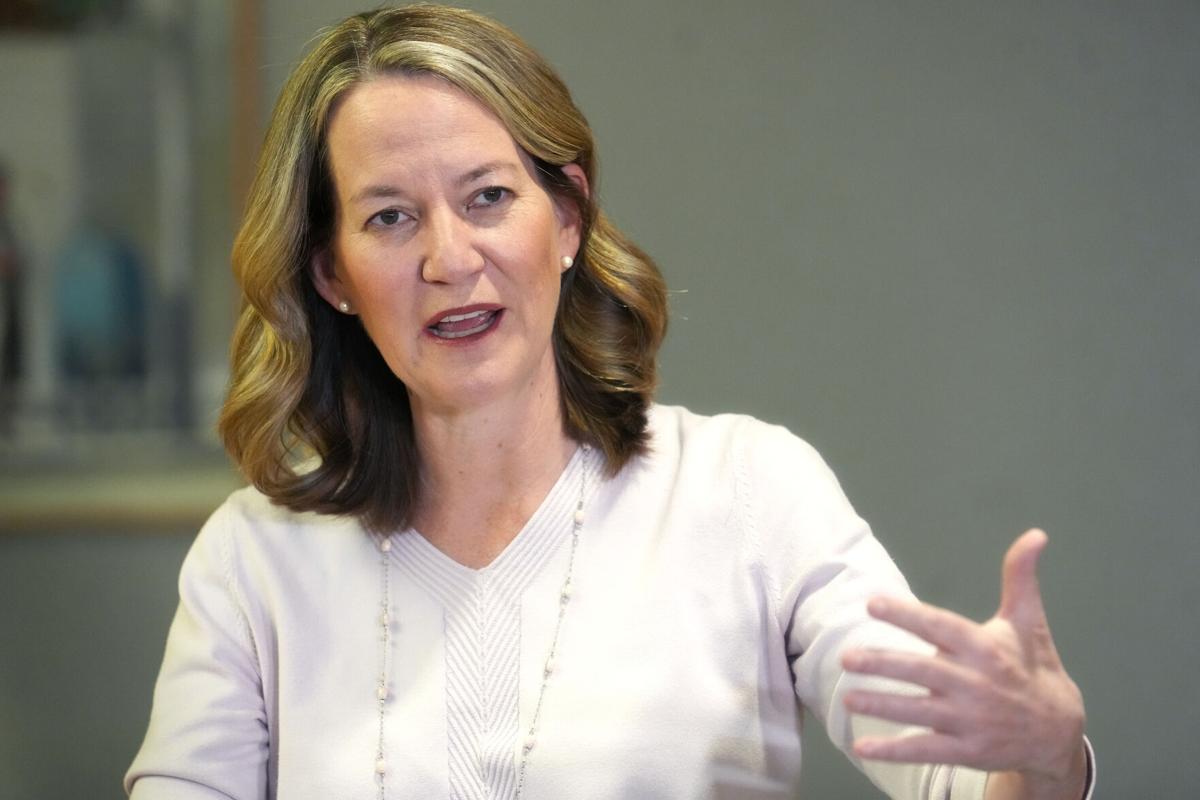PHOENIX — Democratic Attorney General Kris Mayes has rescinded an informal opinion issued by her Republican predecessor that said counties could hand count all ballots in an election, a process Republicans in Cochise County attempted last year based on unfounded concerns that machine ballot tabulators are not secure or accurate.
Mayes issued a formal opinion in its place late Friday, saying existing election laws bar counties from implementing full hand counts of ballots cast on Election Day and those cast early by mail.
The new opinion tracks a judge’s ruling that blocked Cochise County officials from doing the full hand count the county’s Republican-dominated Board of Supervisors ordered following November’s election. Judges look to opinions from the attorney general for important guidance on interpreting state laws, though they are not legally binding.
In the weeks before the Nov. 7 election, the two Republican members of the Cochise County Board of Supervisors justified their decision by pointing to questions raised by former President Donald Trump and his supporters about the accuracy and security of the electronic vote-tabulating machines. They did so despite the lack of any evidence the machines are not accurate or vulnerable to hacking.
Former Attorney General Mark Brnovich, a Republican, backed them up when he had his deputy solicitor general issue an informal opinion a little over a week before the election, concluding their plan passed legal muster. Unlike in formal opinions, though, Brnovich did not sign the document.
A retiree group sued Cochise County, and Pima County Superior Court Judge Casey McGinley ruled a day before the election that full hand counts were barred by law.
The judge pointed to detailed instructions laid out by the Legislature on how hand counts of a sampling of Election Day and early ballots are to be conducted and the rules on expanding those audits if the numbers don’t match. Early ballot hand counts are strictly limited unless the results don’t match, he wrote, while starting with a full hand count of Election Day ballots goes against rules requiring ballots for sampling to be chosen at random.
The county board is still appealing that ruling.
Mayes has now weighed in. In her signed opinion, Mayes wrote that Brnovich misinterpreted the law and should not have bypassed the office’s normal process for issuing opinions.
“Upon further review of the statute and the (judge’s) decision, the office has concluded that the informal opinion misinterpreted the governing statutes,’’ Mayes wrote. “Nor should an informal opinion unsigned by the Attorney General have been issued in a similar manner as a formal opinion.’’
Mayes came into office in January after narrowly defeating Republican Abe Hamadeh in November in an election that placed Democrats in all three top Arizona offices for the first time in decades.
Mayes criticized Brnovich for politicizing the office and has reversed or taken contrary views on several of his decisions, ranging from his defense of laws that would outlaw virtually all abortions; to the right of cities to tell landlords they cannot discriminate against tenants simply because their rent is being subsidized by federal programs.
In the new opinion, she agreed with McGinley that allowing a full hand count would render the detailed instructions on expanding the count if the results did not match the machine count unnecessary and meaningless. The hand counts are intended to ensure the machine tabulators accurately count the ballots.
Cochise County Recorder David Stevens, a Republican who supported the hand count effort and had recruited volunteers from both major political parties to do the count before it was blocked, did not immediately return a call Monday seeking comment.
But Alexander Kolodin, an attorney representing Cochise County in its appeal, said he thinks the county will prevail at the Court of Appeals, regardless of what Mayes is now saying.
“All I can say is coming in and overturning your predecessor’s opinion is obviously a political move,” said Kolodin, who also serves as a Republican member of the state House of Representatives from Scottsdale.
Anyway, he said, Mayes’ opinion — even a formal one in her role as attorney general — is just that. “At the end of the day, these AG opinions are not the law, they’re not case law, they’re not precedent,’’ Kolodin said.
The lower court judge’s ruling said Arizona law limits hand counts of early ballots to 1% of those cast or 5,000, whichever is less, and does not allow an expansion unless the count doesn’t match the machine tally. For ballots cast in person in Election Day, it’s at least 2% of the precincts or 2%, whichever is greater, chosen at random.
Republicans who control the Legislature have passed a law that would allow counties the discretion to expand their hand-count audits to 100% of the ballots cast. But its fate is uncertain since Democratic Gov. Katie Hobbs opposed Cochise County’s expansion effort last year while serving as secretary of state, Arizona’s top election officer.
Get your morning recap of today's local news and read the full stories here: http://tucne.ws/morning





